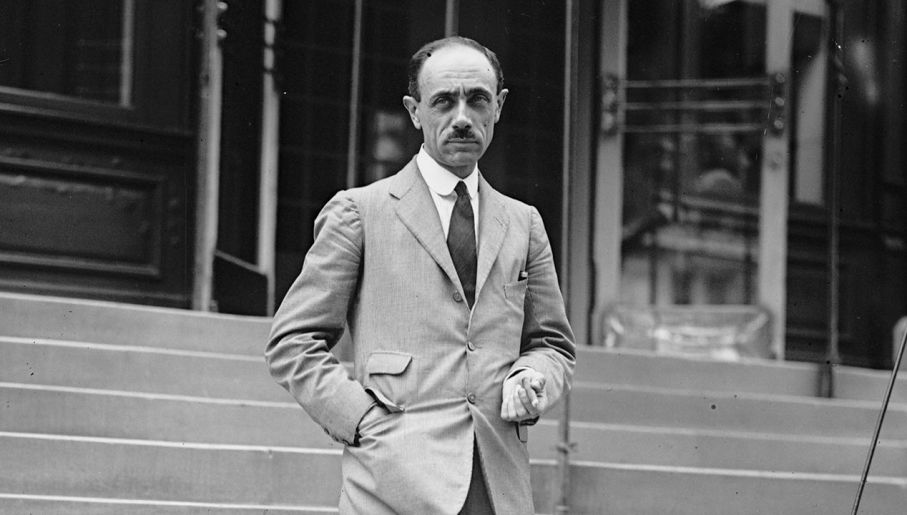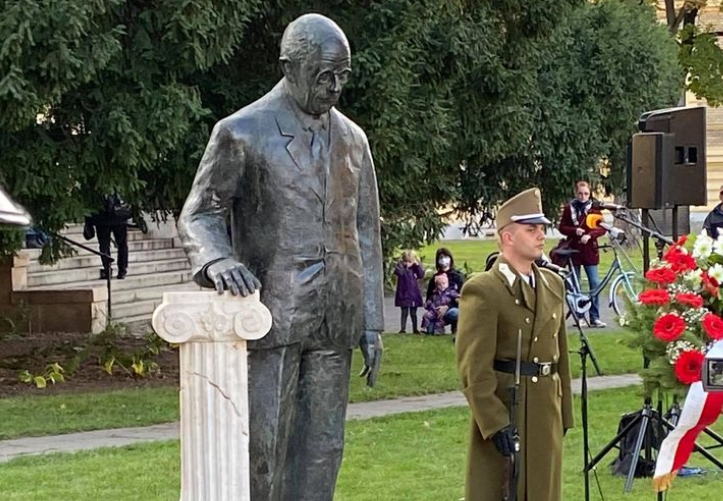Count Pál Teleki, a conservative Hungarian politician, prominent geographer, and two-time prime minister, refused to help Hitler attack Poland.
It is a matter of national honor on the part of Hungary not to take part in any military action against Poland. Hungary cannot undertake any action against Poland for moral reasons - Teleki said.
In April 1941, he committed suicide in a dramatic gesture against Hungary's cooperation with the Third Reich.
On the occasion of the unveiling of the Teleki monument, the Chairman of the Foreign Affairs Committee Marek Kuchcinski sent a letter to Karol Biernacki, Honorary Consul of the Republic of Poland in Szeged.
Dear Honorable Consul,
Thank you very much for the invitation to take part in the unveiling ceremony of the Pál Teleki Memorial in Szeged on 21 October this year. Until the last moment, I had planned my participation in the programme of the ceremony, however, due to the sudden and unforeseen change in the calendar of the Sejm of the Republic of Poland, I will ultimately not be able to accept the invitation.
I wholeheartedly support the initiative to commemorate Pál Teleki by unveiling a monument dedicated to him, because he fully deserved this as a man and as a politician: he was extremely loyal to his friends and allies, he was faithful to his principles to the end, and he valued honour above life. He expressed his special attitude towards our country by making extremely important political decisions, first in 1920 when he gave Poland military aid in the war with the Bolsheviks and almost 20 years later, when in 1939 he refused Hungary's participation in the invasion of Poland planned by Hitler. These gestures not only deserve the highest moral evaluation, but also testify to extraordinary courage and sense of dignity. Pál Teleki was one of those foreign politicians to whom the Poles, and not only the Poles, owed a great deal. In addition to the sympathy and historical ties that he liked to invoke in arguing his decisions, he acted in accordance with his own conscience and sense of justice. Ultimately, he preferred to take his own life rather than participate in the criminal plans of the Third Reich.
Sincere regret that I cannot take part in today's act, I would like once again to thank you, Mr. Honorary Consul, as well as Bishop László Kiss-Rigó for the invitation and to wish the hosts and organizers of this initiative, as well as all the guests a pleasant and solemn atmosphere, many emotions and deepened reflection on contemporary forms of heroism and its limits. I am convinced that the organ concert in the masterful interpretation of Ms. Lidia Książkiewicz will be fully conducive to these moods.
Please accept, Mr. Honorary Consul, the expression of my sincere sympathy and respect.
Yours sincerely
Chairman of the Commission
Marek Kuchciński




